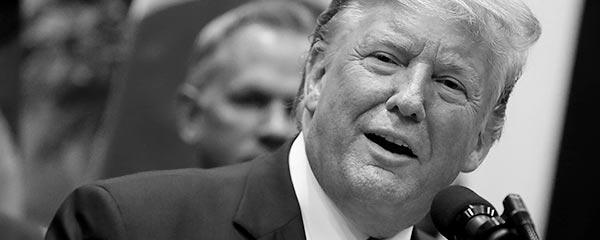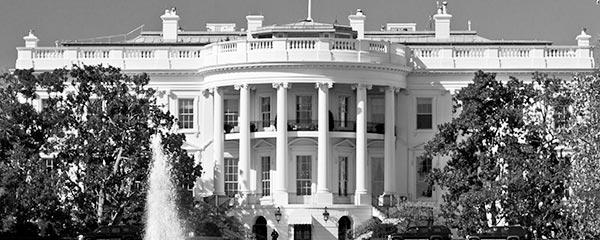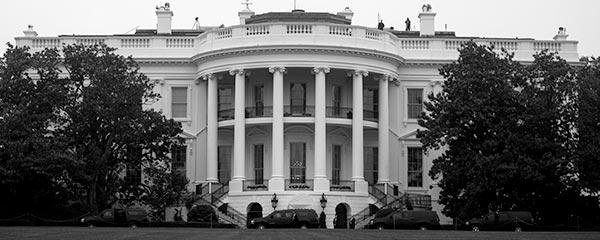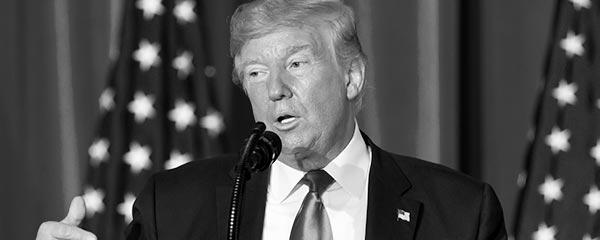President Donald Trump recently convened a "Black Voices for Trump" conference in Atlanta. In his speech to those assembled, Trump said: "We're going to campaign for every last African-American vote in 2020. We've done more for African-Americans in three years than the broken Washington establishment has done in more than 30 years." And, according to reporting, Trump added that "the Democrat Party already left you a long time ago ÔÇŽ if you don't want liberal extremists to run your lives, then today we say welcome to the Republican Party."
This theme echoes a message Trump delivered to black Americans during his first presidential campaign in the summer of 2016, when he : "At the end of four years, I guarantee you that I will get over 95% of the African-American vote. I promise you. Because I will produce."
A prediction that Trump will gain 95% of the black vote is hyperbole, of course, but Trump clearly thinks he should be improving on the 8% vote among blacks he received three years ago. Based on what we see so far in terms of black ratings of the job Trump is doing as president, currently at 10%, I don't see a high probability of that happening.
For one thing, there has been remarkably little variation in Trump's job approval ratings among any group. As my colleague Jeffrey Jones recently noted, "Perhaps the most notable aspect of Trump's quarterly average approval ratings is their stability," with less than six percentage points separating Trump's highest and lowest quarterly averages so far in his term in office. More remarkably, Trump's calendar-year averages in 2017, 2018 and through this month in 2019 have varied by only one point, coming in at 40%, 41% and 41%, respectively.
The same stability holds true for Trump's approval rating among black Americans. ║┌┴¤═° averages show Trump with a 10% approval rating among blacks in 2017, 11% in 2018 and 10% so far in 2019. In short, Trump's approval rating among blacks has essentially not changed over time, despite blacks presumably having had plenty of time to observe the economic gains that Trump touts as the reason why they should be moving into his camp.
Approval ratings for an incumbent president have a significant relationship to actual election outcomes. I think it is fair to say that Trump's progress toward a substantially higher share of the black vote than he got in 2016 is in severe doubt if he maintains a 10% black approval rating. Notably, the last Republican president before Trump, George W. Bush, had a 14% approval rating among blacks in 2004 as he was seeking re-election. Bush received 11% of the black vote that November.
Black Approval for a GOP President Was Higher in 2001 and 2002
It's certainly possible in theory that a Republican president can gain relatively high black approval ratings. As is well-known, President George W. Bush's job ratings overall and among blacks increased significantly after 9/11. He averaged a 43% approval rating among blacks in 2001 and a 46% black approval rating in 2002. But this situation was the result of an extraordinary rally effect -- and it would probably take some type of similarly highly unusual international or domestic event affecting all Americans' views of Trump for his black ratings to rise into similar territory.
Bush's strong showing among blacks didn't last long. By his fourth year in office, Bush's job approval ratings among blacks had fallen, and he ended up with an 11% average rating among blacks over his second term -- about the same as Trump has been getting in his first three years in office.
Black Vote for GOP Presidential Candidates Low Since 1976
It's also important to keep in mind the context provided by the history of the black vote for Republican presidential candidates.
A review of the 's collection of exit poll data for recent presidential elections shows that the black share of the vote given to the Republican candidate has averaged 10% since 1976. This ranges from a low of 4% for John McCain in 2008 (when he ran against Barack Obama) to 17% for Gerald Ford in 1976 (when he ran for re-election against Jimmy Carter). Since 1984, the average black share of the vote for the GOP candidate has been 9%. George W. Bush averaged 10% of the black vote in his two elections; his father, George H. W. Bush, averaged 10.5% in his two elections; and Ronald Reagan averaged 11.5% in his two elections.
Trump's 8% of the black vote in 2016 is thus not at all unusual. Barring an extraordinary event that produces a surge in support for Trump nationally, history projects that his share of the black vote will be similarly low in 2020.
Bottom Line
The 2020 presidential election is almost a year away, and what happens next year will depend in part on who wins the Democratic nomination to face off against Trump -- whether it's one of the 17 Democratic candidates currently running (including three black Democrats) or potentially a new candidate jumping into the race at the last minute.
But it appears very unlikely there will be a sudden breakthrough by which Trump gains a substantially higher percentage of the black vote than he got in 2016. Black Americans' approval of the job Trump is doing as president remains low, and the stability of these ratings since Trump took office suggests a low probability that the pattern will be significantly disrupted. The history of consistently low black voting for GOP candidates over the past four decades also underscores the structural challenge any Republican candidate faces in attempting to increase their black vote share. It's likely that black voters' enthusiasm and turnout in next year's election will be a much more important variable than the predictably high percentage of the vote black voters will give to the Democratic candidate.




